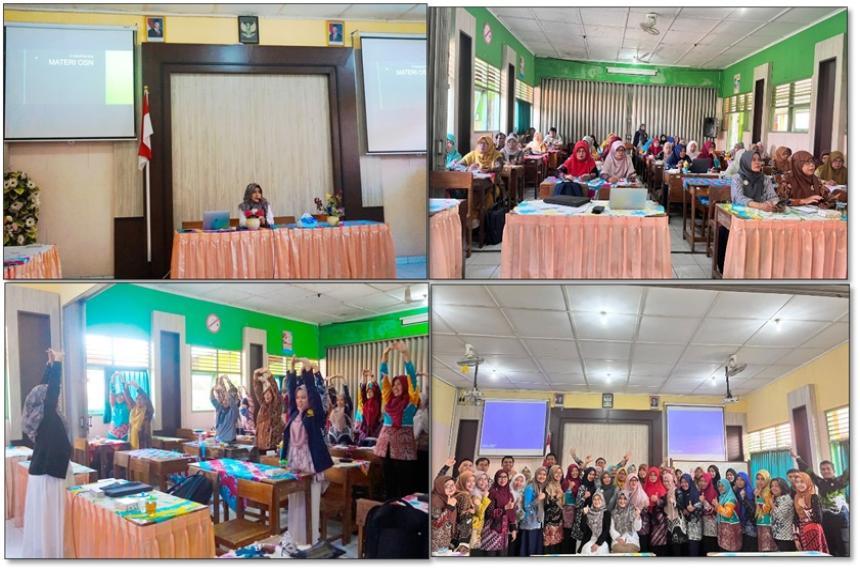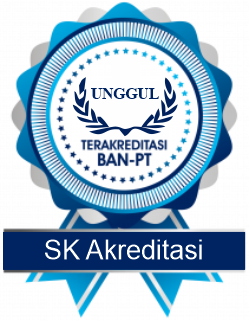 Bahasa Indonesia
Bahasa Indonesia English
English
The Lecturer Team of the Mathematics Education Study Program, FMIPA UNY, Organizes Technical Guidance (BIMTEK) for the Junior High School Mathematics Teacher Working Group (MGMP) in Kulon Progo

The Mathematics Education Study Program Faculty Team at Universitas Negeri Yogyakarta organized a Technical Guidance (BIMTEK) activity themed Mathematics Learning with a Deep Learning Approach in collaboration with the Junior High School Mathematics MGMP of Kulon Progo Regency. The BIMTEK was scheduled for August 7 and 21, 2025, at SMPN 1 Pengasih, Kulon Progo.
The second session, held on August 21, 2025, began with a welcoming speech by Mr. Sudaryanta, S.Pd., Chair of the Junior High School Mathematics MGMP of Kulon Progo. He warmly welcomed the continuation of this BIMTEK activity and emphasized its importance—not only for discussing learning strategies but also for providing teachers with the opportunity to deepen their understanding of mathematical content through Olympiad problem-solving. The lecturers serving as resource persons for this activity were Mrs. Husna ‘Arifah, M.Sc., and Dr. Nikenasih Binatari, assisted by three master’s students.
The second meeting agenda opened with a session delivered by Mrs. Husna Arifah, M.Sc. She began by reviewing the Statistics homework assigned during the first meeting. The homework consisted of problems on probability, combinations, and data distribution designed to train fundamental skills in statistics. Through this review, MGMP teachers were encouraged to reflect on the challenges they faced while solving the problems and to consider more effective strategies. Most teachers were able to solve the problems using the correct procedures, although a few minor errors remained.
After the homework discussion, Mrs. Husna continued with Statistics material as a reference for guiding students in preparation for the National Science Olympiad (OSN). The topics covered included probability, data processing and distribution, permutations, combinations, and the application of statistics in OSN problems. She emphasized the importance of mastering fundamental statistical concepts, as many Olympiad problems require strong data analysis skills and probabilistic reasoning. A detailed discussion on permutations and combinations was also provided, as these topics form essential combinatorial skills frequently appearing in OSN-level problems. The teachers were not only guided in theoretical understanding but also trained to connect concepts with contextual examples applicable to student preparation.
The session then continued with Dr. Nikenasih Binatari, M.Sc., who presented Number Theory material as one of the lecturers specializing in the National Science Olympiad (OSN). Before delving into the main content, she conducted a simple ice-breaking activity to energize participants. Following this, Dr. Nikenasih distributed 10 number theory quiz questions as a warm-up exercise using Kahoot. This activity stimulated curiosity about the material to be delivered and also encouraged teachers to get accustomed to using technology, such as Kahoot, as inspiration for classroom practice.
The main material covered fundamental concepts such as divisibility in integers, divisibility properties, factors, multiples, and prime numbers. She also explained basic divisibility rules, including: a number is divisible by 2 if the last digit is even; divisible by 3 if the sum of its digits is a multiple of 3; divisible by 5 if the last digit is 0 or 5; and divisible by 11 if the difference between the sum of the even and odd digits is a multiple of 11. This material was presented clearly with examples, enabling MGMP teachers to readily grasp its application both in classroom teaching and Olympiad preparation.
At the end of the session, Dr. Nikenasih conducted a short quiz based on the number theory material discussed. This closing quiz allowed participants to reflect on their understanding and strengthen their mastery of the concepts as foundational material for number theory in the Junior High School Mathematics OSN.
The agenda concluded with the distribution of evaluation forms to MGMP teachers as feedback for improving the quality of future BIMTEK activities. The second day of the event was officially closed with words of gratitude and a collective prayer, marking the successful completion of the activity.
Copyright © 2026,



